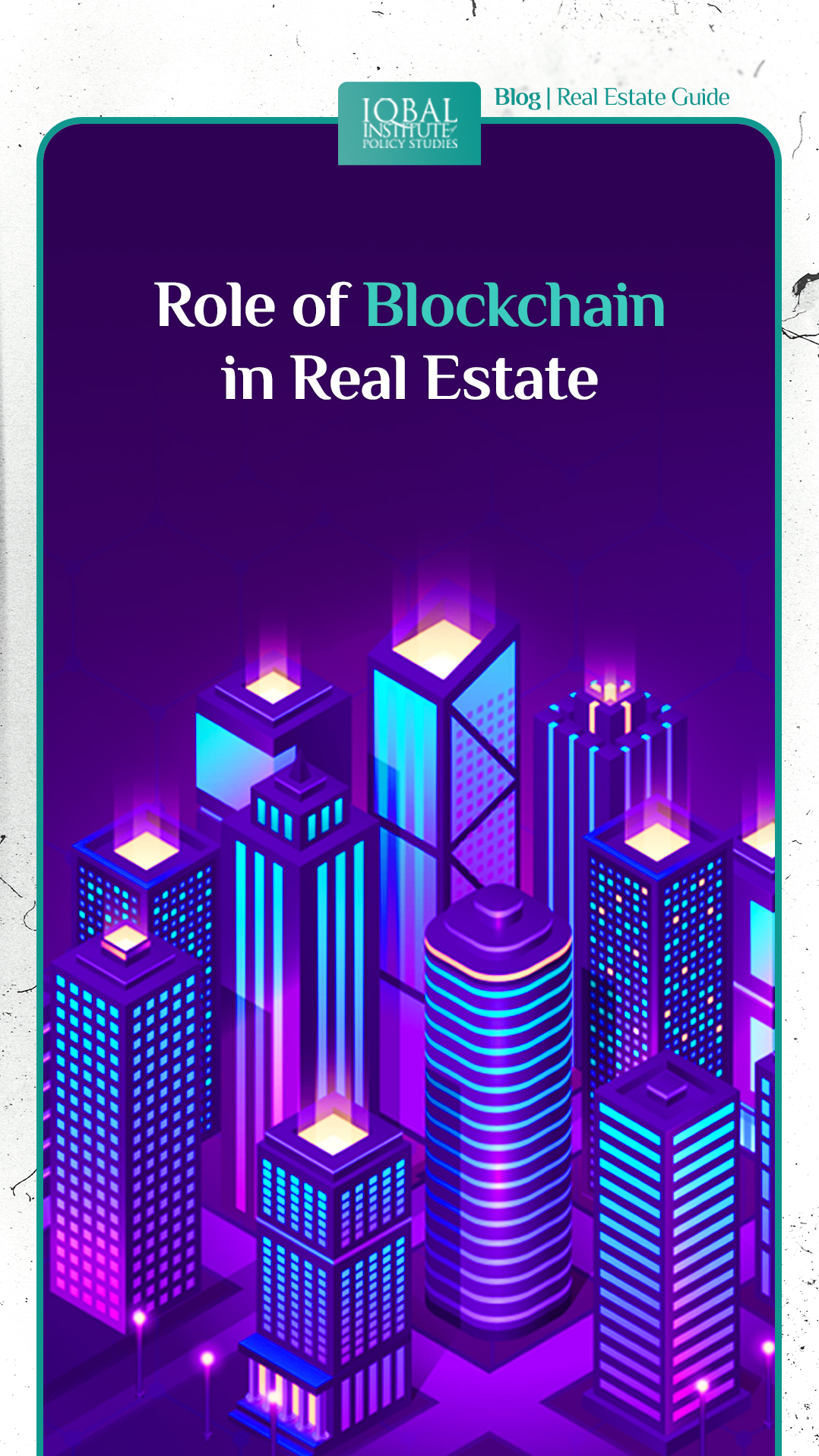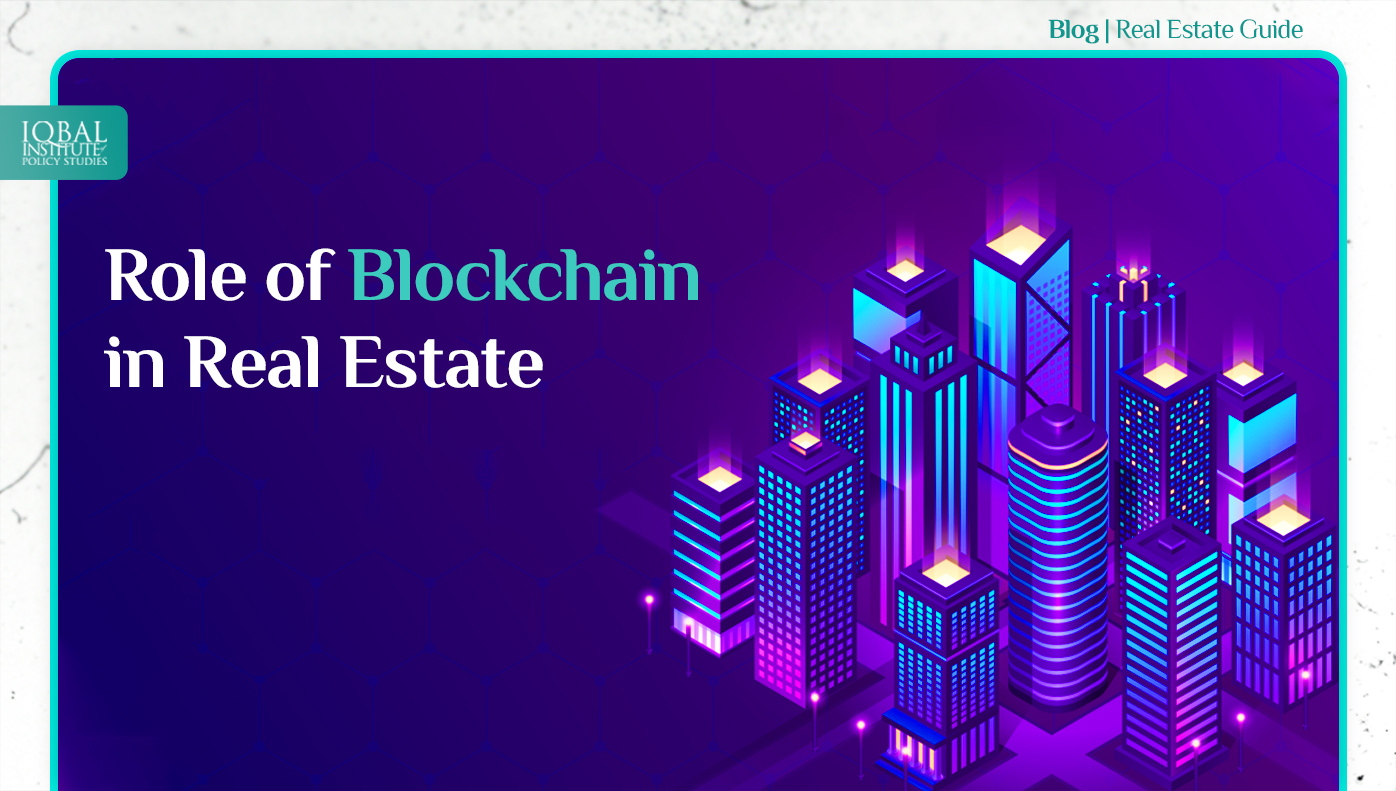Blockchain is a decentralised database used to store information electronically in digital format. Blockchain technology is more commonly known for its role in cryptocurrency systems securing transaction records. It provides data integrity and security without creating the need for a trusted third party. Given blockchain’s widespread application across industries, it is not surprising that real estate has adopted blockchain technology in multiple areas as well. While previously real estate transactions were mostly conducted face to face, the introductions of smart contracts in blockchain have paved the way for changing that.
Benefits
Blockchain transactions are ideal for real estate because they are transparent and cannot be interfered with. Since real estate transactions are usually complex and involve more than two parties, blockchain makes the process easier by allowing all parties to see the transaction, which helps avoid fraud.
Moreover, blockchain helps streamline the buying and selling process by making it quick and easy. Real estate transactions are usually very long, sometimes stretched to weeks or even months. With blockchain, transactions can be completed within a few minutes. There is also no need for paper contracts or any physical documentation since the relevant data would be stored on the blockchain, making the procedure more efficient.
Real estate is one of the fastest growing industries worldwide, so they are constantly keeping up with technological advancements and adopting new mechanisms. Here are a few ways in which the real estate market has been impacted by blockchain.
Marketplace
The real estate market has found its primary concern in listing and linking different buyers and sellers. With the advent of blockchain, new ways, such as online marketplaces, have been introduced. Some platforms like Atlant, a real estate blockchain platform, use blockchain technology to aid real estate and rental property transactions. This way, sellers can tokenise their assets, handle them like a stock sale and liquidate the asset by selling a token on the platforms.
The Reduced Role of Intermediaries
The real estate sector has always involved brokers, lawyers, and banks. Blockchain can remove all such intermediaries from the transaction process because platforms can take up the functions of listings, payment, and legal documentation themselves, which results in both the buyers and sellers getting more money because of reduced cost. This also makes the entire buying and transaction process quicker and ensures better communication between the two parties involved.
 Liquidity
Liquidity
Real estate is usually considered an illiquid asset because it takes a very long time for the sales to conclude. Moreover, a seller must wait for a buyer who can afford the whole property to sell and get some value out of it. This has been changed by how blockchain and cryptocurrencies work since, in theory, tokens can be traded for fiat currency through exchanges. This means real estate might not be an illiquid asset in the coming future because of the ease blockchain would bring in converting the property into cash for its market value.
Decentralisation
As a decentralised technology, blockchain commands security. Information stored on the blockchain becomes available to all parties, making it transparent. This means at any stage in the transaction or deal; any party can verify information which gives the buyers and sellers more confidence in carrying out the payments. Fraud attempts, something that the real estate system in Pakistan is plagued by, would become significantly less.
Ownership
Another significant way in which blockchain is revolutionising the real estate industry is by allowing fractional ownership. This makes entering the market easier because, unlike previously, a considerable amount of money is not needed to make investments, so the barrier to entering the market is lowered. With blockchain, investors only need a suitable platform, and they can buy and sell fractions of the tokens per their choice. This also reduced the hassle of managing and maintaining a property once bought.
Limitations
Even though blockchain and cryptocurrency can open new doors in the real estate market and increase investment, there are a lot of risks associated with them in Pakistan. For one, with an increase in cryptocurrency and bitcoin, there is a risk of the expected value of the black economy also rising since transactions become increasingly difficult to trace back to the person who made them. Moreover, the technology that is required to create blockchains is high power-intensive. According to Digiconomist, the Bitcoin network consumes 73 terawatt-hours of electricity, which can be a severe concern for the power sector in the country. There is also always the risk of hacking associated with online platforms, and since real estate transactions involve a large sum of money, it would pose a more significant threat.

Way Forward
Various examples worldwide show that cryptocurrencies and blockchain are here to stay and impact how our transactions are carried out. Not only do they have many benefits, but they also make buying and selling real estate more efficient. Even though there are some concerns associated with adopting bitcoin on a large scale, with proper regulation, these risks can be averted. One way to regulate cryptocurrency is by bringing it under the money transmission law. This would mean that money transmitters would have to get licenses to operate. Moreover, in Pakistan, the State Bank of Pakistan could become part of the international convention for cryptocurrencies and attempt to devise strategies with other countries that centralise regulatory efforts. The State Bank could also look at the example of Poland, where cryptocurrencies are included in different aspects of contract law. [2] This specifies that instead of being an alternate form of payment, cryptocurrency is a personal belonging, which allows them to be taxed as personal income. The government should also use a system where personal data is secured using blockchain technology to ensure people feel safe in a digital environment.
References
“Bitcoin Energy Consumption Index” digiconomist [1]
https://digiconomist.net/bitcoin-energy-consumption
Afzal, A. Asif, A “Cryptocurrencies, Blockchain and Regulation: A Review” (2019) Lahore Journal of Economics [2]







Leave a Reply